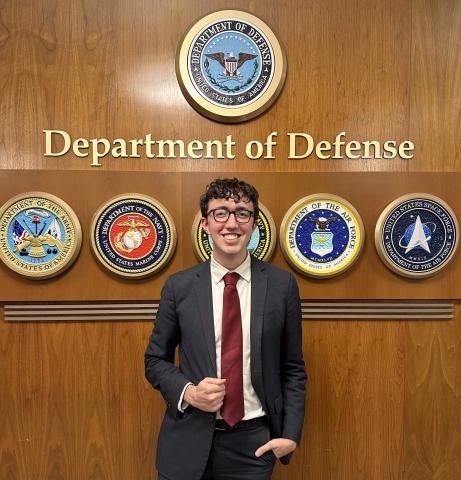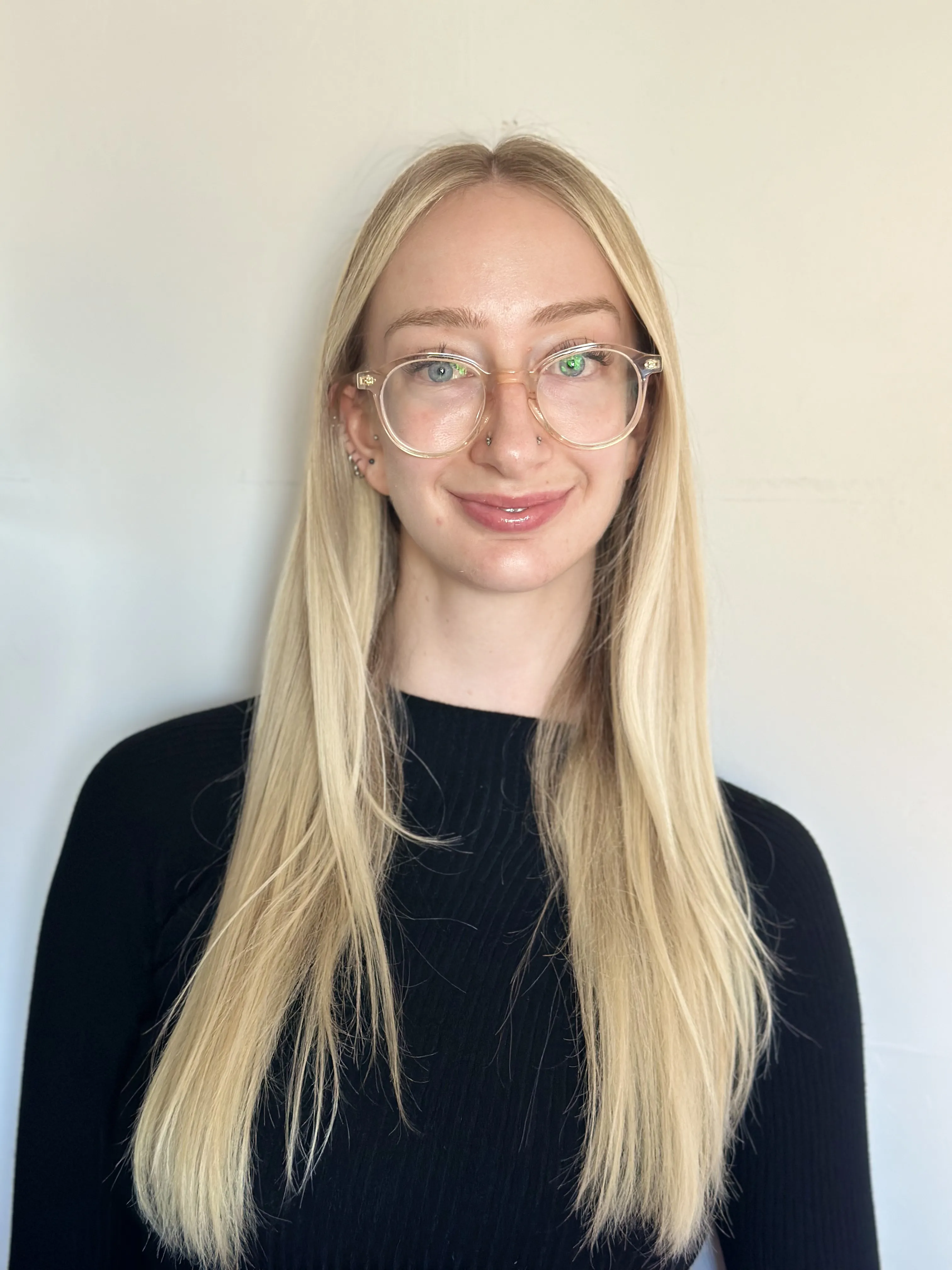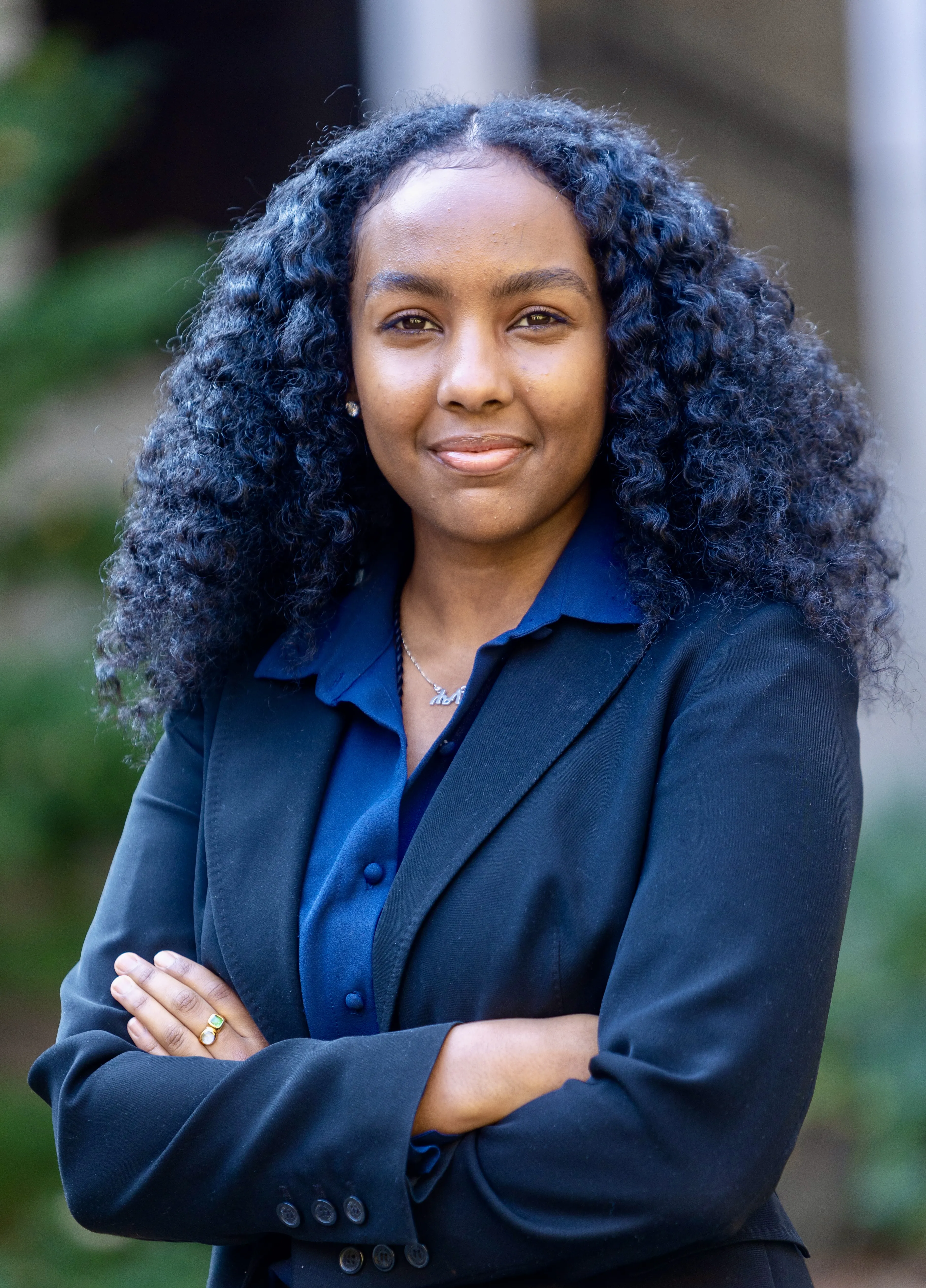Summer Experiences: Robert Dohrman, ’26, Honors Legal Intern, Department of Defense, Office of the General Counsel
Robert Dohrman, ’26, is spending his summer in Washington, DC, working in the Department of Defense within the Office of the General Counsel. With a strong interest in public service, Dohrman has found his summer experience to be invaluable to helping him understand the inner workings of a career in the public sector.
How did you connect with this summer opportunity?
Throughout my time at the Law School, I’ve known that I’m interested in public service, and prior to becoming a law student, I had studied and worked in the foreign policy sphere. When I saw my current position posted on Symplicity in the fall quarter, I knew I had to apply!
How does your experience connect with what you currently envision doing with your law degree?
After graduation, I’m interested in doing litigation, especially litigation involving regulatory/administrative and constitutional issues, in DC. My experience this summer has allowed me to participate in a lot of high-profile litigation involving the government, which has provided exposure to the types of legal issues that interest me, the inner workings of Department of Justice (DOJ) trial teams, and the mechanics of litigation itself. For example, I’ve had the opportunity to participate in discussions regarding requests for production (vis à vis privilege) in a case implicating constitutional and administrative law issues, and to watch a deposition in the same case. I think these experiences have helped lay the foundation for the litigation skills I hope to build as a practicing attorney.
Please describe a “typical” day at work.
My office is modeled after the Office of Legal Counsel within the DOJ, so we handle a variety of complex legal issues facing the Department of Defense (DOD). In a “typical” day, I might work on/attend deposition preparation meetings in the morning and spend my afternoon conducting legal research on issues related to the prosecution of detainees at Naval Station Guantanamo Bay. But my days can be highly variable—the work I’m assigned each day depends on the demands of ongoing litigation/controversies involving DOD.
What is something you learned or experienced that was surprising or particularly compelling during this summer position?
During my internship, I’ve had the opportunity to participate in the decision-making process regarding a potential appeal to a case the government (DOJ, representing DOD interests) lost at trial. It was fascinating and incredible to see how that process works, including the number of individual government offices/components that weigh in, the different ways that different agencies protect/advocate for their interests, and the sheer creativity and intelligence of the attorneys involved. It was also exciting to see how legal arguments, including some to which I contributed legal research, filtered through DOD and DOJ up to the Solicitor General’s office.
What are a couple of your key takeaways from the experience so far?
So much of government lawyering is infused with, or at least takes place in the shadow of, political considerations. Giving bad advice or losing the wrong case can lead to really undesirable headlines for the higher-ups, and navigating those considerations often requires a strong understanding of current events in addition to knowledge of the law. My other big takeaway is that the legal profession (done successfully) is highly collaborative. People, teams, and whole offices really seem to thrive the best when they are willing to delegate, answer questions, and offer support on projects that their teammates are struggling with.
What advice would you offer another law student contemplating working in a similar position next summer?
Applying for and considering a position at a large government agency can be intimidating, especially when it’s not clear from the outside how a particular position might align with your goals (the first thing that comes to my mind when I think DOD isn’t litigation!). But when considering these positions, it’s helpful to remember that the lawyers in these in-house government legal offices serve particular ‘clients’ with particular interests, just as attorneys at a law firm might. The ‘clients’ at DOD include intelligence agencies, miliary hospitals/schools, court-martial convening authorities, and everything/everyone in between—and DOD legal interns have the opportunity to work with all of them. Thinking (and asking potential employers) about the clientele particular to a government agency/office is a helpful way to consider and discern among public sector summer opportunities.
How are you spending your free time this summer?
I’ve done a lot of site-seeing this summer—going to the museums, monuments, and buildings that DC is famous for. I have also been making time to catch-up with old friends and colleagues, while also getting to know and hang out with my co-interns from this summer. As a result, I’ve spent a lot of time trying out new restaurants/happy hours and revisiting places I enjoyed as an undergrad.
What are you most looking forward to in returning to UChicago Law this fall?
I’m excited to see my friends/my section again—this summer has been very busy (and very hot!), so it will be nice to relax and enjoy the fall weather with them when I get back to Chicago in September. I’m also looking forward to meeting the incoming 1L class—I’ve taken on a leadership role in a couple of student organizations this year, so I’m eager to welcome them to the Law School and to see how they engage with our community. Lastly, I’m looking forward to taking new classes that cover more advanced topics, especially with the background and practical experience I’ve gained in my job this summer.
Is there anything else you’d like to share?
In my opinion, some of the coolest summer job opportunities for 1Ls in DC are in the public sector! Pursing law firm opportunities is a good way to get a jump on the 2L recruitment process, but 1Ls interested in the DC market should keep an eye on the Arizona Handbook and USAJobs, and strongly consider any public sector opportunities they receive.



